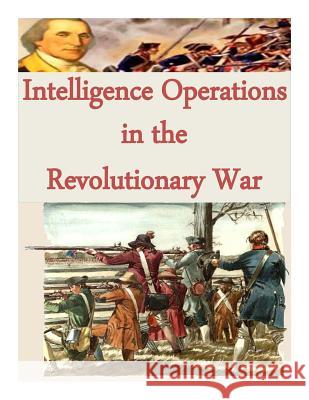Intelligence Operations in the Revolutionary War » książka
Intelligence Operations in the Revolutionary War
ISBN-13: 9781499250640 / Angielski / Miękka / 2014 / 26 str.
While the Committee of Secret Correspondence was meeting secretly in Philadelphia with agents of France, Arthur Lee was meeting in London with Pierre-Augustin Caron de Beaumarchais, the successful author of The Barber of Seville (and later The Marriage of Figaro)-who was a French agent. Lee's inflated reports of patriot strength, which either he fabricated for Beaumarchais' benefit or were provided by Lee's regular correspondent, Sam Adams, won the Frenchman to the American cause. Beaumarchais repeatedly urged the French Court to give immediate assistance to the Americans, and on February 29, 1776 addressed a memorial to Louis XVI quoting Lee's offer of a secret long-term treaty of commerce in exchange for secret aid to the war of independence. Beaumarchais explained that France could grant such aid without compromising itself, but urged that "success of the plan depends wholly upon rapidity as well as secrecy: Your Majesty knows better than any one that secrecy is the soul of business, and that in politics a project once disclosed is a project doomed to failure." With the memorial, Beaumarchais submitted a plan proposing that he set up a commercial trading firm as a cover for the secret French aid; he requested and was granted one million livres to establish a firm to be known as Roderigue Hortalez et Cie for that purpose. Beaumarchais' memorial was followed by one of March 12, 1776, by the French Minister of Foreign Affairs, the Comte de Vergennes. Royal assent was granted, and by the time Silas Deane arrived in Paris, French aid was on its way to the patriots. Deane expanded the Franco-American relationship, working with Beaumarchais and other French merchants to procure ships, commission privateers, recruit French officers, and purchase French military supplies declared "surplus" for that purpose. On September 26, 1776, the Continental Congress elected three commissioners to the Court of France, Benjamin Franklin, Thomas Jefferson and Silas Deane, resolving that "secrecy shall be observed until further Order of Congress; and that until permission be obtained from Congress to disclose the particulars of this business, no member be permitted to say anything more upon this subject, than that Congress have taken such steps as they judged necessary for the purpose of obtaining foreign alliance." Because of his wife's illness, Jefferson could not serve, and Arthur Lee was appointed in his stead. With Franklin's arrival in France on November 29, 1776-the first anniversary of the founding of the Committee of Secret Correspondence-the vital French mission became an intelligence and propaganda center for Europe, an unofficial diplomatic representation, a coordinating facility for aid from America's secret allies, and a recruiting station for such French officers as Lafayette and Kalb. In October 1777 the Continental Army won a crucial victory over the British at Saratoga, and on February 6, 1778, the French-American treaty of alliance was signed. On March 30, 1778, Franklin, Lee, and Deane were received at the French Court as representatives of the United States of America, and on July 7 of that year Comte d'Estaing's French fleet cast anchor in the Delaware River. France was in the war; the mission to Paris had succeeded. Spain, at the urging of French Foreign Minister Vergennes, matched France's one million livres for the operation of Hortalez et Cie. But that was not the beginning of secret Spanish aid to the Patriots. During the summer of 1776 Luis de Unzaga y Amezaga, the governor of New Spain at New Orleans, had privately delivered some ten thousand pounds of gunpowder, out of the King's stores, to Captain George Gibson and Lieutenant Linn of the Virginia Council of Defense. The gunpowder, moved up the Mississippi under the protection of the Spanish flag, made it possible to thwart British plans to capture Fort Pitt.
Zawartość książki może nie spełniać oczekiwań – reklamacje nie obejmują treści, która mogła nie być redakcyjnie ani merytorycznie opracowana.











